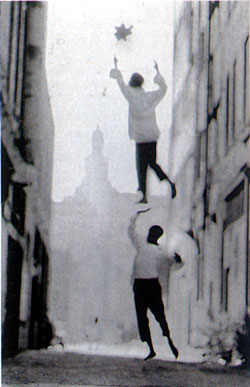 The Commission for Investigation of the Abuse of Authority (CIAA) has blown two high-profile cases. The CIAA punishes small-time embezzlers more than four out of five times. But its record is dismal when it comes to catching the big fish-Govinda Raj Joshi, Khum Bahadur Khadka, and others. The reasons why lie in three I's: incentives, incorrect emphasis, and inconsistent laws.
The Commission for Investigation of the Abuse of Authority (CIAA) has blown two high-profile cases. The CIAA punishes small-time embezzlers more than four out of five times. But its record is dismal when it comes to catching the big fish-Govinda Raj Joshi, Khum Bahadur Khadka, and others. The reasons why lie in three I's: incentives, incorrect emphasis, and inconsistent laws.
Incentives: The CIAA doesn't have its own lawyers and investigative officers, though it can hire private lawyers to argue its cases. Almost all its personnel are on deputation from government departments and ministries.
Under-secretaries and joint-secretaries spend a few years at the CIAA knowing they will go back to their ministries upon completing their rotation. These bureaucrats do run after obscure underlings accused of, say, presenting falsified educational credentials for civil service jobs. But they are understandably nervous about nailing top politicians and top ex-bureaucrats who might-remember, this is Nepal!-run their future ministries. Until the CIAA recruits its own independent officers, it will remain beholden to politicians.
Incorrect emphasis: Dr Narayan Manandhar, a CIAA watcher, says we've focused too much on the consequences of corruption, and not enough on the causes and early signs.
In the name of punishment, for instance, we tolerate violations of civil rights by applauding even when the CIAA yanks allegedly corrupt people out of their beds at midnight to be thrown into jail. But as long as we maintain tediously numerous bureaucratic procedures designed only to increase the interactions per transaction between a politician or bureaucrat and businesspeople, corruption will continue to grow and stay undetected. "What sick people are to a doctor, corrupt people are to the CIAA," says Manandhar. As such, until we start to change the emphasis from cure to prevention, there's no point in crying over the courts' decisions.
Inconsistent laws: "Even if the CIAA drags us to the Supreme Court, I am confident that we will win because of the soundness of our arguments," says Lalit Bahadur Basnet, a member of the four-person legal defence team of Joshi and Khadka. Basnet's team benefited from the Special Court's favourable interpretation of an old law which says that there is a time limit of only one year within which a corruption-related lawsuit against a person holding public office can be filed.
In Joshi's case, the court did not apply a more recent version of that law, which allows for an open time-frame during which lawsuits can be filed. Why the court chose one law over the other remains unclear. Still, it is likely that the Supreme Court might just take the opposing view, and let at least the facts of Joshi's case be admitted for a re-trial.
In Khadka's case, the CIAA simply did a poor job of collecting evidence. Not surprising as, historically, the CIAA has been better at arresting people, filing charges against them and basking in the glow of 15-minutes of fame than at doing a thorough investigation to find out provable information on how the embezzlers might have hidden the money. Again, this comes from the lack of career incentives the short-term CIAA personnel face when going after the big fishes.
The loss of two high-profile cases is an opportunity for the CIAA to examine how its incentive system and institutional emphasis, and a poor reading of the Special Court's orientation converged to damage its own credibility. Now its challenge is to ensure that lawsuits against other politicians, two ex-IGPs and three ex-Secretaries don't fail.



